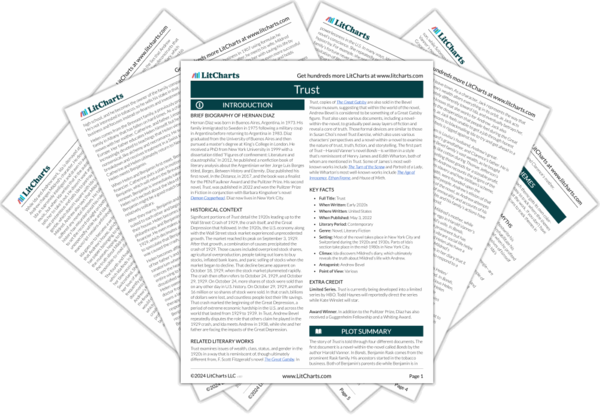That penny that Ida’s father uses to purchases a knife from Ida symbolizes the idea that the most valuable things in life—like one’s close relationships—cost nothing, or at least next to nothing. Shortly after Andrew dies, Ida buys her father a knife as a gift. Her father is reluctant to accept the gift, though, because he superstitiously believes that receiving it will cause the bond between him and Ida to be cut. He then uses a penny to buy the knife so that it won’t technically be a gift. After he buys the knife, Ida keeps forever the penny that “[saves] their relationship,” and the two remain close until Ida’s father’s death.
The novel contrasts Ida’s father’s death to Andrew’s. Unlike Ida’s father, Andrew dies alone with no close relationships. He once seemed to genuinely love his wife Mildred, but after her death, he uses his autobiography to subjugate her and burnish his image as a “Great Man,” severing whatever bond he may have maintained with her memory after her death. Though Andrew is one of the richest men in the world and can buy anything he can imagine, he can’t buy the kind of relationship that Ida has with her father, signaling the relative worthlessness of literal wealth when compared to the figurative riches that come with close relationships.
Notably, Ida’s father does give her money to save their relationship, even though that money is only a penny. That exchange of money then symbolizes the novel’s pragmatic view toward finances and economic stability. That is, while wealth can’t buy happiness, it’s impossible to forego any connection with money, even for someone like Ida’s father, who is an anarchist who despises finance capital.








